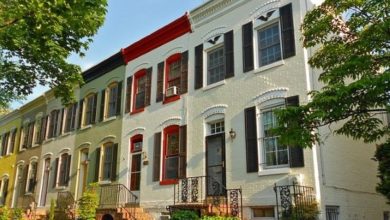Home Loans in Florida: Best Mortgage Options for Buyers


Buying a home is a big step, and understanding the different types of home loans in Florida is crucial for a smooth purchase. Many buyers wonder, what are the 4 types of loans for homes? In Florida, the main options include conventional loans, FHA loans, VA loans, and USDA loans. Each comes with its own requirements and benefits.
The average interest rate for home loans in Florida usually follows the national trend, so checking current interest rates on home loans gives you an idea of what to expect when you apply in Florida.
Conventional Home Loans
Conventional mortgages are one of the most common types of home loans in Florida, offered by private lenders without government backing. These standard home loans require a good credit score (around 620 or higher), a stable income, and a down payment (usually at least 5%). Meeting these basic Florida home loan requirements can get you a competitive interest rate and help you avoid extra fees.
If you are interested in qualifying for a mortgage in Florida, you have to prove to lenders you have solid credit, stable income, and funds for the down payment and closing costs.
Conventional loans can even be used to finance certain factory-built houses. However, manufactured home loans in Florida (or mobile home loans in Florida) come with extra rules – the home usually must be on a permanent foundation and you should own the land it sits on.
FHA, VA, and USDA Loans
If your credit isn’t perfect or you have limited savings, you still have options. Many buyers wonder, “can I buy a house with bad credit in Florida”? The answer is often yes – through government-backed programs.
These options serve as home loans in Florida:
1. Conventional Loans Are For
- Borrowers with good to excellent credit (680 or above).
- Homebuyers with stable employment and income.
- Buyers planning to purchase a second home or investment property.
- Individuals able to provide a down payment of at least 5–20%.
- Homebuyers seeking properties priced above FHA limits.
2. FHA Loans Are For
- First-time homebuyers or borrowers with limited savings.
- Individuals with moderate to lower credit scores (580–679).
- Buyers looking for low down payment options (3.5%).
- Buyers who may have experienced previous financial issues (bankruptcy, foreclosure, etc.).
- Those seeking properties within FHA price limits.
3. USDA Loans Are For
- Buyers looking to buy a home in designated rural or suburban areas in Florida.
- Borrowers seeking 0% down payment options.
- Families or individuals with moderate incomes.
- Buyers interested in homes that meet specific USDA property eligibility standards.
- Homebuyers who prefer competitive interest rates and reduced mortgage insurance costs.
4. VA Loans Are For
- Active duty service members, veterans, reservists, or National Guard members.
- Qualified surviving spouses of deceased service members.
- Eligible buyers seeking no down payment financing options.
- Individuals wanting no private mortgage insurance (PMI).
- Buyers desire favorable interest rates and flexible credit requirements.
5. Jumbo Loans Are For
- High-income borrowers seeking to buy luxury or higher-priced homes exceeding conventional loan limits.
- Individuals with excellent credit (usually 700+) and significant financial reserves.
- Borrowers are able to provide higher down payments (typically 10–20% minimum).
These programs make homeownership possible for many who can’t qualify for a conventional loan. Be sure to check each program’s specific eligibility rules when deciding which loan is right for you.
First-Time Homebuyer and Special Programs
Florida has several initiatives to assist new homebuyers. There are dedicated home loans Florida first time buyers can take advantage of, offering perks like down payment assistance or below-market interest rates. If you fit that category, you may qualify for special loans or grants to make buying easier.
The state’s housing agency provides home loan programs in Florida for first-timers that can cover part of your down payment or closing costs. For example, special home loans for teachers in Florida offer lower rates or extra assistance for educators; similarly, home loans for nurses in Florida and home loans for firefighters in Florida provide benefits for eligible healthcare workers and first responders. These programs often require that you be a first-time buyer and meet certain income limits, and you might need to complete a homebuyer education course.
Home Equity Loans in Florida
How do home equity loans work in Florida? A home equity loan allows you to borrow against the equity you’ve built in your house. You receive a lump sum of money and repay it in fixed monthly payments over a set period, separate from your original mortgage.
If you’re exploring how home equity loans work in Florida, note the application process is similar to your first mortgage.
HELOCs are another way to tap equity. But how do home equity loans work in Florida versus a HELOC? Both use your home as collateral; the difference is that a home equity loan provides a lump sum, while a HELOC lets you draw funds as needed.
When evaluating how do home equity loans work in Florida, remember to shop around for the best deal; home equity loans rates in Florida vary by lender, so comparing offers will help you find the best home equity loans in Florida. If you’re still unsure how home equity loans work in Florida, talk to a lender or financial advisor.
Construction Loans for Building a Home
If you want to build a new house, you’ll likely need a construction loan. These short-term loans finance the home-building process. Funds are disbursed in stages to your builder as construction progresses, and you usually pay interest only on the money used during the build. Once the home is finished, the loan converts into a regular mortgage that you pay off over time.
Construction loans typically require a larger down payment (often 20% or more), a qualified builder, and detailed project plans. Interest rates might be a bit higher than standard home purchase loans due to the added risk. The best home construction loans in Florida usually come from lenders experienced with new builds, so compare options to find a lender that offers favorable terms.




